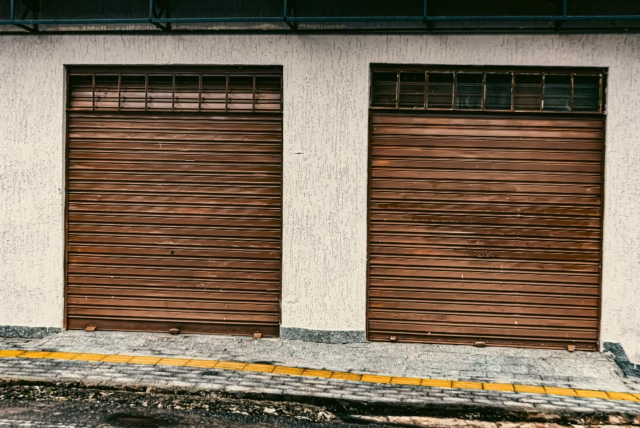A noisy, stubborn, or unresponsive garage door can derail your day fast. If you’re a Cape Coral homeowner searching for practical, trustworthy guidance, you’re in the right place. Below you’ll find expert tips to diagnose common garage door opener issues, simple fixes you can try safely, and clear signs it’s time to call a local professional.
Understanding How Your Opener Works
Your garage door opener is a small motorized unit that lifts and lowers a very heavy, spring-balanced door. It relies on:
- Power & controls: outlet, wall button, remote, and smart app.
- Safety systems: photo-eye sensors and force limits.
- Drive system: chain, belt, or screw drive connected to a trolley.
- Door balance: springs and rollers that let the opener work without strain.
When any one of these pieces drifts out of alignment, you’ll feel it—usually as noise, hesitation, or total failure to open or close.
Common Garage Door Opener Problems
1) The door won’t respond at all
- Likely causes: Tripped GFCI/breaker, unplugged opener, dead remote batteries, locked “vacation mode,” or a burned-out logic board.
- Quick check: Confirm the opener is plugged in, the outlet has power, and the wall control isn’t in lock mode.
2) The opener runs but the door doesn’t move
- Likely causes: Disengaged emergency release, broken drive gear, snapped chain/belt, or a stripped trolley.
- Quick check: Look for a dangling red release cord; if it’s disengaged, reattach the trolley per your manual.
3) Door reverses before closing
- Likely causes: Misaligned photo-eyes, dirty lenses, or force/limit settings off.
- Quick check: Clean the sensors and make sure their LEDs are solid. Slightly loosen, realign until both lights are steady, then retighten.
4) Excessive noise or vibration
- Likely causes: Loose hardware, worn rollers, chain tension issues, or an aging motor.
- Quick check: Tighten visible fasteners on the track and opener bracket. If noise persists, consider upgraded nylon rollers or a belt-drive opener for quieter performance.
5) Remote range is weak
- Likely causes: Low batteries, interference from LED bulbs or nearby electronics, or a failing antenna wire.
- Quick check: Replace remote batteries and try standard, garage-door-compatible light bulbs in the opener.
Safe DIY Troubleshooting Tips
Safety first: Never work on torsion springs, high-tension cables, or major structural components. If you feel unsure at any step, stop and call a pro.
- Power & Controls
- Reset the GFCI: Garages often share a GFCI circuit; press “RESET.”
- Replace batteries: Swap batteries in remotes and the keypad.
- Reprogram remotes/keypads: Follow your opener brand’s instructions to resync.
- Photo-Eye Alignment
- Clean lenses: A microfiber cloth usually solves many “phantom reversal” issues.
- Check LEDs: Both sensors should show solid lights when aligned.
- Measure height: Ensure both sensors are mounted at the same height (typically 4–6 inches from the floor).
- Track & Hardware
- Tighten hardware: Lightly snug bolts on the opener bracket and track supports.
- Lubricate (lightly): Use a silicone-based spray on hinges and rollers (avoid the tracks themselves).
- Inspect rollers: Chipped or wobbly rollers add strain; consider replacing with nylon (by a pro if you’re not comfortable).
- Force & Travel Limits
- Small adjustments only: If the door won’t fully close or opens too high, adjust travel limits as directed in your manual.
- Test safety reverse: Place a 2×4 flat under the door; it should reverse on contact. If not, stop using the door and call a technician.
When to Call a Professional in Cape Coral
Some problems signal deeper risks or require specialized tools and training:
- Broken springs or cables: These are high-tension parts—do not DIY.
- Persistent reversing after sensor fixes: May indicate faulty wiring, logic board issues, or mis-set force limits.
- Grinding, smoking, or burning smells: Shut off power and call immediately.
- Uneven or off-track door: The door may be unsafe to operate.
- Frequent reprogramming or connectivity glitches: A pro can diagnose interference, antenna problems, or a failing circuit board.
A local expert understands Florida’s heat, humidity, and coastal air—factors that accelerate corrosion and shorten component life. They’ll also ensure your system complies with current safety standards and is tuned for everyday reliability.
Pro Tips to Extend Opener Lifespan
- Annual tune-up: A once-a-year professional service catches wear early.
- Use the right bulbs: Some LED bulbs create interference—choose garage-door-safe LEDs.
- Keep it clean: Dust sensors and wipe opener vents to help cooling.
- Upgrade smartly: If your unit is 10–15 years old, a modern belt-drive with battery backup and Wi-Fi may be more cost-effective than repeated repairs.
Ready for Reliable, Local Help?
If your door still hesitates, reverses, or won’t budge, it’s time to bring in a specialist who knows the unique demands of coastal Florida. For quick, friendly service and a safety-first inspection, contact your trusted local team for garage door opener repair Cape Coral, FL. Get your door running smoothly and keep your day on track.







